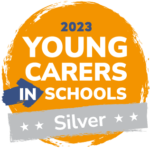Safeguarding Information
This is our safeguarding team at Summerhill Academy
If you want to share any worries or concerns with us, please ask a trusted adult here at school to come and find one of us. They will let us know that you want to speak to one of us
Summerhill takes the safety of the pupils, teachers and parents very seriously. It is everybody’s responsibility to act if they feel that a child is not being cared for properly or is being put at risk. If you suspect that a child is at risk or being harmed please contact either Ms Dunbar, the Designated Safeguarding Lead or Mrs McLeod-Hughes our Deputy Designated Safeguarding Lead.
To ensure that our children are kept safe in school we complete full DBS checks on all adults working/volunteering in school and regularly review our safeguarding procedures.
If you would like more information about keeping your child safe then please look at the following links:
CLF Attendance Booklet for Families
Website Builders Learning Guide
Please remember that nearly all social media companies require your child to be AT LEAST 13 of years of age. Your discretion is strongly advised.
Below is a parent/carer support referral link throughout Covid-19 pandemic. We want to speak to parents and carers, directly over the phone; to listen to you, understand your situation and make a plan with you about how we can help.
Games Consoles
Online Safety
Conduct: children may be at risk because of their own behaviour, for example, by sharing too much information
Children need to be aware of the impact that their online activity can have on both themselves and other people, and the digital footprint that they create on the internet. It’s easy to feel anonymous online and it’s important that children are aware of who is able to view, and potentially share, the information that they may have posted. When using the internet, it’s important to keep personal information safe and not share it with strangers. Discuss with your child the importance of reporting inappropriate conversations, messages, images and behaviours and how this can be done.
Content: age-inappropriate or unreliable content can be available to children
Some online content is not suitable for children and may be hurtful or harmful. This is true for content accessed and viewed via social networks, online games, blogs and websites. It’s important for children to consider the reliability of online material and be aware that it might not be true or written with a bias. Children may need your help as they begin to assess content in this way. There can be legal consequences for using or downloading copyrighted content, without seeking the author’s permission.
Contact: children can be contacted by bullies or people who groom or seek to abuse them
It is important for children to realise that new friends made online may not be who they say they are and that once a friend is added to an online account, you may be sharing your personal information with them. Regularly reviewing friends lists and removing unwanted contacts is a useful step. Privacy settings online may also allow you to customise the information that each friend is able to access. If you have concerns that your child is, or has been, the subject of inappropriate sexual contact or approach by another person, it’s vital that you report it to the police via the Child Exploitation and Online Protection Centre (www.ceop.police.uk). If your child is the victim of cyberbullying, this can also be reported online and offline. Reinforce with your child the importance of telling a trusted adult straight away if someone is bullying them or making them feel uncomfortable, or if one of their friends is being bullied online.
Commercialism: young people can be unaware of hidden costs and advertising in apps, games and websites
Young people’s privacy and enjoyment online can sometimes be affected by advertising and marketing schemes, which can also mean inadvertently spending money online, for example within applications. Encourage your children to keep their personal information private, learn how to block both pop ups and spam emails, turn off in-app purchasing on devices where possible, and use a family email address when filling in online forms.
Please click on the links below for more information. These leaflets are also available in different languages:
Supporting Young People Online – English
Supporting young people online – Arabic
Supporting young people online- Bengali
Supporting young people online – Hindi
Supporting young people online – Somali
Social Media
If you need to talk to someone in Bristol local authority regarding concerns about a child then please call First Response on 0117 903 6444.
They are also able to offer a range of support services for families regarding your child’s behaviour to a problem related to domestic violence. They are also able to support children who need to talk to someone about things that might be worrying them.
Prevent
Prevent is part of the United Kingdom’s counter terrorism strategy. It aims to prevent people from becoming involved in terrorism or supporting terrorism. In Summerhill Academy, the Prevent strategy is part of our wider safeguarding duties.
We have a duty to protect children from radicalisation and extremism. As part of their education, children will learn about different religions and cultures as we believe the best way of preventing extremism and radicalisation is by increasing understanding of each other.
All academy staff and the academy council have received WRAP (Workshop to Raise Awareness of Prevent) training. We have an in-house facilitator to deliver this workshop to all new members of staff. This training means that all adults in school understand Prevent’s aims, have considered who may be vulnerable to radicalisation, understand why some people may be able to influence and manipulate others and can recognise when a child may be in need of help.
If staff have concerns that a child is at risk, the school safeguarding procedure is followed in the same way as with all safeguarding concerns. The academy’s safeguarding officer then makes the decision to refer concerns to the Channel multi-agency panel.
If a parent has a concern that a pupil at Summerhill Academy is at risk of radicalisation, please contact the Safeguarding Team.
2021-22 Prevent Self Assessment
Young Carers
At Summerhill Academy we are aware that some of our pupils are Young Carers. A Young Carer is a child under 18 who is caring unpaid for a family member or friend who is ill, frail, disabled or has mental health or addiction problems. Young Carers are a vulnerable and sometimes disadvantaged group who frequently experience difficulties in their education as a result of their caring role.
Our school community is committed to meeting the needs of Young Carers so that they can attend, enjoy learning and achieve their full potential. We support our Young Carers in the following ways:
- Weekly Drop-in Sessions during Thursday lunchtimes. This is a time to meet other Young Carers and enjoy a fun activity. We often start with some mindfulness to provide a relaxing start to the session. Young Carers can choose whether they would like to attend.
- A weekly opportunity during Monday lunchtime to complete homework or do some additional reading.
- Our Welfare First Aider is available daily if children need someone to talk to.
- Raising awareness of staff so they can support Young Carers effectively.
We have designated Young Carers’ School Leads with responsibility for Young Carers and their families. Both pupils and families have been made aware of the identity of these leads and how to contact them to access support.
Pupils can be supported by:

Louise Dunbar, Young Carers Operational Lead, Designated Safeguarding Lead and member of Senior Leadership Team Louise.Dunbar@clf.uk
Our school only shares information with professionals and agencies on a need to know basis in order to support pupils and their families. We actively seek feedback and ideas from young carers and their families to shape and improve support.


Summerhill Academy Silver Cert
Useful links:
Carers Support for Bristol and South Gloucestershire
The Carers’ Support Centre, Vassall Centre, Gill Avenue, Fishponds, Bristol BS16 2QQ
Tel: 0117 939 2562
Email: youngc@carerssupportcentre.org.uk
Useful Links
Keeping Children Safe in Education Document – Translated Versions
Child Sexual Exploitation Leaflet for Parents
Working-together-to-safeguard-children for children
GUIDE_Young_Persons_Guide_to_Keeping_Children_Safe younger children




